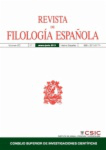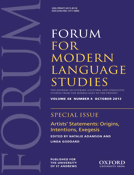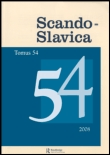
Cadernos de Letras da UFF
Scope & Guideline
Fostering Global Dialogue in Humanities Research
Introduction
Aims and Scopes
- Literary Studies:
The journal publishes research on various literary genres, examining themes, narrative structures, and character development, often focusing on Brazilian authors and their contributions to global literature. - Translation Studies:
A significant focus on translation practices, theories, and the role of translators, particularly in relation to classical texts and contemporary literature, reflecting on cultural implications and the process of translation. - Cultural and Historical Contexts:
Research often situates literary works within their socio-political and historical contexts, analyzing how these factors influence narratives and characterizations, especially in relation to Brazilian history. - Linguistic Analysis:
The journal includes studies on linguistic phenomena, exploring language use, structure, and the interplay between language and identity, with a focus on Brazilian Portuguese and its variations. - Interdisciplinary Approaches:
Encouraging interdisciplinary research, the journal explores connections between literature, linguistics, philosophy, and cultural studies, promoting a holistic understanding of texts and their implications.
Trending and Emerging
- Necropolitics and Literature:
A growing interest in the concept of necropolitics, particularly in relation to Brazilian literature, reflects an engagement with themes of violence, power, and identity, making it a significant area of contemporary research. - Gender and Translation:
Emerging themes around gender perspectives in translation studies are increasingly prominent, highlighting the role of female translators and their contributions to the understanding of classical and contemporary texts. - Cultural Identity and Literature:
Research focusing on cultural identity, particularly in the context of Brazilian multiculturalism and the legacies of colonialism, is on the rise, emphasizing literature's role in negotiating identity and belonging. - Digital Humanities and Literature:
With the advent of digital platforms, there is a noticeable trend towards exploring the intersection of literature and digital media, including the analysis of podcasts and online narratives, which reflects changing modes of literary consumption. - Environmental Narratives:
The journal is increasingly publishing works that address environmental themes and narratives, indicating a growing awareness of ecological issues within literary studies, particularly in Brazilian contexts.
Declining or Waning
- Traditional Linguistic Theory:
Recent publications indicate a move away from traditional linguistic theories towards more contemporary and applied linguistic studies, suggesting a decline in interest in foundational linguistic concepts. - Historical Literary Narratives:
While historical perspectives remain relevant, there seems to be a diminishing focus on purely historical literary narratives, as contemporary themes and modern interpretations gain more traction in recent issues. - General Literary Criticism:
The journal appears to be moving away from broad literary criticism towards more specialized and thematic analyses, indicating a waning interest in generalist approaches to literature. - Language Standardization Debates:
Though once a significant area of focus, debates surrounding language standardization are becoming less frequent, possibly reflecting a broader acceptance of linguistic diversity and multilingualism in academic discussions.
Similar Journals

Revista da Anpoll
Empowering academics with free access to vital findings.Revista da Anpoll is a prestigious academic journal dedicated to the fields of Letters and Linguistics, published by the ASSOC NAC POS-GRADUACAO PESQUISA LETRAS & LINGUISTICA in Brasilia, Brazil. Since its inception in 1994, this Open Access journal has aimed to foster scholarly communication and lead discourse in the linguistic and literary disciplines, allowing researchers and practitioners free access to cutting-edge research and findings. Although it does not currently have an H-index, the journal continues to attract high-quality submissions from experts in its field, contributing to the global academic community. By offering a platform for innovative studies and discussions, Revista da Anpoll plays a critical role in advancing knowledge and practice within linguistics and literary studies, making it an invaluable resource for academics, professionals, and students alike.

REVISTA DE FILOLOGIA ESPANOLA
Fostering Academic Dialogue in Spanish PhilologyREVISTA DE FILOLOGIA ESPANOLA is a distinguished academic journal dedicated to the fields of linguistics and literature, published by the CONSEJO SUPERIOR INVESTIGACIONES CIENTIFICAS (CSIC) since 1954, and has been an Open Access journal since its inception. Situated in Madrid, Spain, this journal has emerged as a crucial platform for the dissemination of scholarly research, with notable rankings including Q2 in Linguistics and Language and Q1 in Literature and Literary Theory as of 2023. The journal's commitment to fostering academic dialogue is reflected in its impressive Scopus rankings, including a 79th percentile in the Arts and Humanities for Literature and Literary Theory. Covering a wide range of topics from linguistic theory to literary critique, REVISTA DE FILOLOGIA ESPANOLA is essential reading for researchers, professionals, and students alike, providing valuable insights and cutting-edge research in the ever-evolving landscape of Spanish philology.

Cuadernos de Rusistica Espanola
Exploring the Intersections of Spanish and Russian StudiesCuadernos de Rusistica Española is an esteemed scholarly journal dedicated to the field of Spanish and Russian studies, published by EDITORIAL UNIV GRANADA. With its commitment to Open Access since 2005, the journal fosters wide dissemination of knowledge and research, aiding scholars and students alike in exploring the intricate connections between Spanish and Russian linguistics, literature, and cultural studies. Based in Granada, Spain, the journal spans a broad scope of topics, making it a crucial resource for researchers aiming to advance understanding in comparative literature, language studies, and interdisciplinary approaches. The ISSN for the print version is 1698-322X and for the online version, 2340-8146. As an open-access platform, it increases accessibility and engagement with cutting-edge research findings, making it a vital contribution to the academic community.

Cadernos de Traducao
Unlocking knowledge in the world of translation and literature.Cadernos de Tradução, published by the Universidade Federal de Santa Catarina, is an esteemed open-access journal dedicated to fostering scholarship in the fields of Language, Linguistics, and Literature. Since its inception in 1996, this journal has emerged as a vital platform for research, particularly known for its rigorous peer-review process and commitment to academic excellence. With a Q2 ranking in Linguistics and Language and a Q1 ranking in Literature and Literary Theory as of 2023, it stands out in the global academic landscape, holding significant positions in Scopus rankings across various categories. Researchers, professionals, and students will find a wealth of interdisciplinary studies that contribute to current discussions and advancements in translation theory and practice. The journal's open-access model enhances visibility, ensuring that groundbreaking research is accessible to a wide audience, thus promoting dialogue and collaboration within the international academic community.

Archivum
Cultivating a Collaborative Environment for Linguistic InquiryArchivum, published by UNIV OVIEDO in Spain, stands as a vital resource in the fields of Linguistics and Language as well as Literature and Literary Theory. With an impact factor reflective of its commitment to scholarly excellence, this journal has proudly maintained an Open Access model since 1951, ensuring that its rich repository of knowledge is freely available to researchers, professionals, and students alike. Covering a converged span from 2019 to 2023, Archivum has strategically positioned itself within the academic milieu, currently categorized in the Q4 for Linguistics and Language and Q3 for Literature and Literary Theory as of 2023. The journal is indexed in Scopus, with rankings that reflect its growing influence, such as #690 in Literature and Literary Theory and #887 in Language and Linguistics. Despite its challenges in visibility, Archivum remains essential for those seeking to engage with contemporary discussions and research within the humanities. Located in the heart of Asturias, it embodies the scholarly spirit of Spain, fostering a collaborative environment for innovation and inquiry in linguistic and literary studies.

FORUM FOR MODERN LANGUAGE STUDIES
Advancing the Frontiers of Language and LiteratureFORUM FOR MODERN LANGUAGE STUDIES is a prestigious academic journal published by Oxford University Press that has been serving the fields of literature and linguistics since its inception in 1965. This journal, with an ISSN of 0015-8518 and an E-ISSN of 1471-6860, plays a crucial role in advancing scholarly discourse on modern language studies, including literature and literary theory. With an impactful presence in both the linguistic and literary domains, it has been recognized in 2023 with a category ranking of Q2 in Literature and Literary Theory and Q3 in Linguistics and Language. It stands out in the competitive landscape, holding a notable position within Scopus rankings, including a 70th percentile ranking in Literature & Literary Theory. While the journal currently does not offer open access options, it remains a vital resource for researchers, educators, and students passionate about the transformative power of language and literature. Its commitment to quality research and robust academic discussion underscores its importance, making it a key platform for those aiming to contribute to modern language scholarship.

Scando-Slavica
Illuminating the Rich Tapestry of Scandinavian and Slavic ScholarshipScando-Slavica is a renowned academic journal published by ROUTLEDGE JOURNALS, TAYLOR & FRANCIS LTD, specializing in the rich interplay of Scandinavian and Slavic studies. With its ISSN 0080-6765 and E-ISSN 1600-082X, the journal has been a critical resource for scholars since its inception in 1954, covering a wide range of disciplines including archaeology, cultural studies, history, linguistics, and literature. As of 2023, it has consistently ranked in the third quartile across various categories, indicating its influential role in disseminating innovative research within the arts and humanities. With a focus on interdisciplinary dialogue, Scando-Slavica aims to foster a deeper understanding of cultural exchanges and linguistic connections, making it an essential read for researchers, professionals, and students interested in exploring the complexities of Nordic and Slavic interactions. While currently not an open access journal, its contributions have garnered substantial citations, bolstering its academic impact and relevance in a diverse scholarly landscape.

Letras de Hoje-Estudos e Debates em Linguistica Literatura e Lingua Portuguesa
Cultivating Interdisciplinary Insights in Language StudiesLetras de Hoje-Estudos e Debates em Linguistica Literatura e Lingua Portuguesa, published by EDITORA UNIV PONTIFICIA UNIV CATOLICA RIO GRANDE SUL-EDIPUCRS, is a leading academic journal in the fields of linguistics, literature, and the Portuguese language. With an esteemed history dating back to 1967, it has proudly maintained an Open Access model, making significant scholarly contributions accessible to researchers, professionals, and students worldwide. The journal serves as a crucial platform for the exchange of innovative ideas, critical discussions, and extensive research findings targeting both theoretical and applied dimensions of language studies. The commitment to fostering community engagement and interdisciplinary dialogue underscores its importance within the academic landscape, encouraging submissions that challenge conventional paradigms and explore the complexities of Portuguese linguistics and literature. For those involved in these dynamic fields, Letras de Hoje remains an essential resource for advancing knowledge and supporting scholarly discourse.

Cuadernos de Filologia Clasica-Estudios Latinos
Illuminating the Intricacies of Ancient TextsCuadernos de Filologia Clasica-Estudios Latinos is a distinguished academic journal dedicated to the field of classical philology, with a particular emphasis on Latin studies. Published by UNIV COMPLUTENSE MADRID, SERVICIO PUBLICACIONES, this journal serves as a vital platform for scholars, educators, and students interested in the rich legacy of Latin literature and its linguistic intricacies. The journal, identifiable by its ISSN 1131-9062 and E-ISSN 1988-2343, aims to foster scholarly dialogue through the publication of innovative research articles, critical essays, and book reviews that advance knowledge within this specialized discipline. Although it operates under a non-open access model, its contributions are invaluable, enriching the academic community's understanding of classical texts and their contemporary significance. Through its rigorous scholarship and commitment to excellence, Cuadernos de Filologia Clasica-Estudios Latinos positions itself as an essential resource for anyone invested in the study of classical languages and literatures.

Gragoata-UFF
Advancing knowledge through interdisciplinary dialogue.Gragoata-UFF, an esteemed academic journal published by the Universidade Federal Fluminense, serves as a vital platform for the dissemination of scholarly research in the humanities and social sciences. With its Open Access model established since 1996, the journal ensures that high-quality research is accessible to a global audience, facilitating the exchange of ideas and knowledge. Located in the vibrant city of Rio de Janeiro, the journal promotes interdisciplinary dialogue and continually seeks to engage researchers, professionals, and students in critical discussions relevant to contemporary societal issues. Although specific metrics like HIndex and Scopus ranks are not detailed, Gragoata-UFF remains committed to fostering innovative scholarship that is both impactful and relevant.